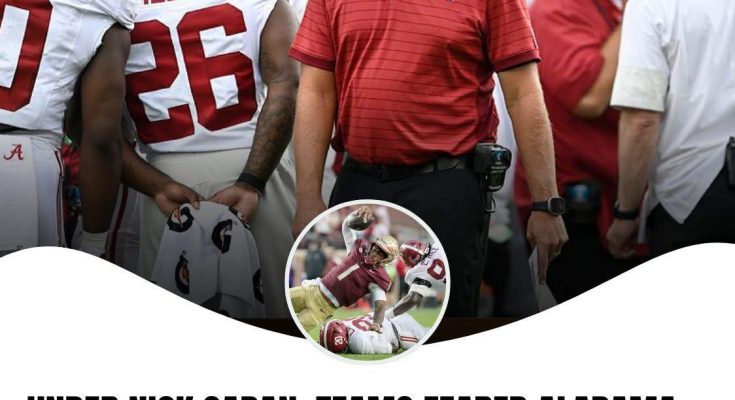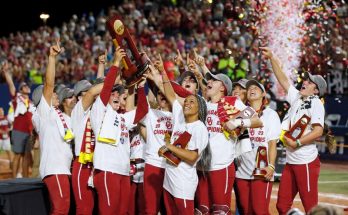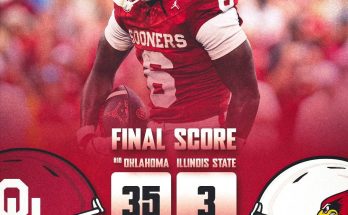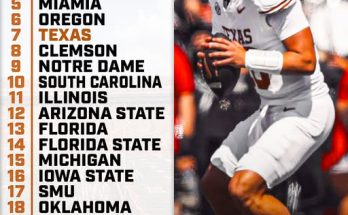Alabama football has long stood as the gold standard in college athletics, a dynasty that seemed untouchable for nearly two decades under Nick Saban’s leadership. But with the legendary coach gone and Kalen DeBoer now in charge, the once-mighty Crimson Tide appear to have lost their aura of invincibility. That was made painfully clear in their 31–17 loss to Florida State, a defeat that not only marked a rocky start to the season but also reinforced the growing belief that Alabama’s glory days might truly be behind them. It wasn’t just the score that told the story, but the way the game unfolded, the lack of fear in the eyes of the opponent, and the cracks in the foundation that once seemed unshakable. Patrick, a longtime analyst who has covered Alabama during both its dominant and struggling eras, didn’t hold back in his criticism of DeBoer, stating bluntly that Alabama no longer intimidates anyone. That alone is a stunning reversal of fortune for a program that for years won games before even stepping onto the field, simply because of the weight of its reputation.
For decades, the Crimson Tide have represented the very essence of dominance. Recruits dreamed of wearing the iconic crimson jersey, opponents dreaded stepping into Bryant-Denny Stadium, and championships felt more like expectations than possibilities. But the world of college football is constantly shifting. Programs rise, dynasties fall, and the cycle of competition ensures that no one stays at the top forever. What’s surprising for Alabama fans is not that the team is struggling—every program eventually does—but that the decline has come so quickly and feels so irreversible. One can blame the transfer portal, NIL money, or even the rise of other powerhouses like Georgia, Michigan, and Florida State, but the reality is that Alabama doesn’t look like Alabama anymore. The intimidation factor that carried them through so many seasons is gone, and in its place is a team that looks as vulnerable as any other.
The 31–17 loss to Florida State is a case in point. Instead of the relentless physicality and suffocating defense that Alabama was known for, the Seminoles played with confidence, executing their game plan with little hesitation. At one time, teams came into games against Alabama already nervous, almost expecting to lose. But Florida State’s body language told a different story—they were ready to compete, ready to prove that the Tide no longer carried the same weight. Patrick’s comments might sting Alabama fans, but they were grounded in reality. He noted that Alabama’s mystique has evaporated, and when opponents no longer feel intimidated, the playing field levels in ways that can’t be overcome by talent alone. That is perhaps the most dangerous development for DeBoer and his staff.
DeBoer himself admitted after the game that improvement was necessary. His honesty was refreshing but also concerning. Alabama fans are used to hearing about “the process,” about staying the course, about demanding perfection in every rep, every play, and every season. To hear a coach acknowledge that the team simply isn’t where it needs to be strikes a chord of unease. Improvement is always possible, but when a program as historically dominant as Alabama starts talking about building back up instead of maintaining dominance, it reveals just how far they have fallen. It’s not just about one loss—it’s about a shift in identity, a shift in culture, and perhaps even a shift in expectations.
College football has always been a game of cycles. Programs rise, dominate, and then fade, only to be replaced by another rising star. We’ve seen it with Miami in the early 2000s, USC during Pete Carroll’s tenure, Florida during the Urban Meyer era, and now Alabama appears to be following that same trajectory. The question, however, is whether Alabama can bounce back quickly or if this marks the beginning of a long stretch in the wilderness. DeBoer is no stranger to success—his track record at Washington was impressive—but the pressure cooker of Tuscaloosa is unlike anything he has ever faced. Every loss feels magnified, every misstep scrutinized, and every word dissected. For Alabama fans who have grown accustomed to dominance, patience will be in short supply.
The troubling part for many observers is how ordinary Alabama now looks. Once known for overwhelming opponents with superior talent, conditioning, and preparation, they now appear to be just another good team in a crowded field. There is talent on the roster, of course, but talent alone is not enough. The lack of cohesion, the inconsistent execution, and the absence of that trademark Alabama swagger all point to a team in transition, one struggling to rediscover its identity. Florida State exposed those flaws, but other teams will notice as well. Once one program proves that Alabama can be beaten, others follow suit with less fear and more determination.
The psychological aspect of football cannot be overstated. When Alabama took the field during its peak years, opponents often lost the mental battle before the first snap. Players saw the jerseys, the helmets, and the reputation, and they shrank under the pressure. That advantage has evaporated, and regaining it may be even harder than fixing the Xs and Os on the field. Confidence breeds dominance, and right now Alabama lacks both. DeBoer faces the monumental task of not only developing his players physically and strategically but also restoring the belief that Alabama football is something greater than just another opponent.
The fans, too, play a crucial role in this process. Alabama’s fan base is one of the most passionate in the country, but passion can quickly turn to impatience. Already, social media is buzzing with criticism, second-guessing, and frustration. Some are calling for DeBoer to be given time to rebuild, while others argue that Alabama should never accept mediocrity, even temporarily. This tension within the fan base reflects the broader identity crisis facing the program. What does it mean to be Alabama now? Are they still the kings of college football, or are they simply a storied program trying to claw their way back to relevance?
One could argue that Alabama is facing challenges that didn’t exist during the height of its dominance. The transfer portal allows players to leave more easily, NIL money creates new dynamics in recruiting, and the overall talent pool in college football is deeper than ever. Programs like Georgia and Michigan have built juggernauts of their own, while schools like Florida State, Texas, and LSU are rising fast. The days of one program holding a monopoly on success may be over. That doesn’t excuse Alabama’s struggles, but it does put them in context. The college football landscape has changed, and the Tide must adapt or risk being left behind.
But perhaps the biggest question is whether Alabama fans themselves are ready to accept the reality of change. For years, winning wasn’t just expected—it was assumed. National championships were not dreams; they were annual goals, and anything less felt like failure. Now, with the team stumbling out of the gate and facing uphill battles against elite opponents, fans may need to recalibrate their expectations. That doesn’t mean settling for mediocrity, but it might mean recognizing that the journey back to the top will be longer and harder than anyone anticipated.
It’s easy to blame DeBoer for the current state of the program, but the truth is that transitions are rarely seamless. Following a legend like Nick Saban is an impossible task in many ways, and DeBoer will always be judged against an impossible standard. The key for him will be carving out his own identity, building his own version of Alabama football rather than trying to replicate what came before. That takes time, but time is something he may not have in abundance if the losses continue to pile up.
Still, it’s worth remembering that dynasties are never truly over until they are completely dismantled. Alabama has the resources, the recruiting base, and the institutional support to bounce back. One bad loss does not erase decades of dominance. However, what it does do is force the program to confront uncomfortable truths. The intimidation factor is gone, the dominance is in question, and the future feels uncertain. Whether DeBoer can restore the glory remains to be seen, but what is clear is that Alabama is no longer the unstoppable force it once was.
For college football as a whole, this development is both exciting and unsettling. Exciting because parity creates more competition, more unpredictability, and more drama. Unsettling because the sport feels different when Alabama is not at the top. Love them or hate them, the Tide have been a defining force in the modern era of college football, and their decline marks the end of an era. For rival fans, it’s a chance to finally breathe easier. For Alabama fans, it’s a gut punch that challenges their very identity.
This is why the conversation around Alabama’s loss to Florida State matters so much. It’s not just about a score on a Saturday—it’s about what that score represents. It represents change, vulnerability, and the possibility that the glory days are truly over. Whether that’s temporary or permanent depends on what happens next, both on the field and within the program’s culture. DeBoer has acknowledged the need for improvement, and now he must prove that he can deliver it.
What do you think? Has Alabama’s dynasty truly come to an end, or is this just a temporary stumble on the way to another resurgence? Is Kalen DeBoer the right man to lead the program back to glory, or is Alabama destined to fall behind in the new era of college football? Share your thoughts, your frustrations, or even your optimism in the comments. The conversation around Alabama football is just as important as the games themselves, and your perspective helps shape how we all understand this historic moment. Do you believe the Tide will rise again, or are we witnessing the end of an era? Let’s hear what you think.



